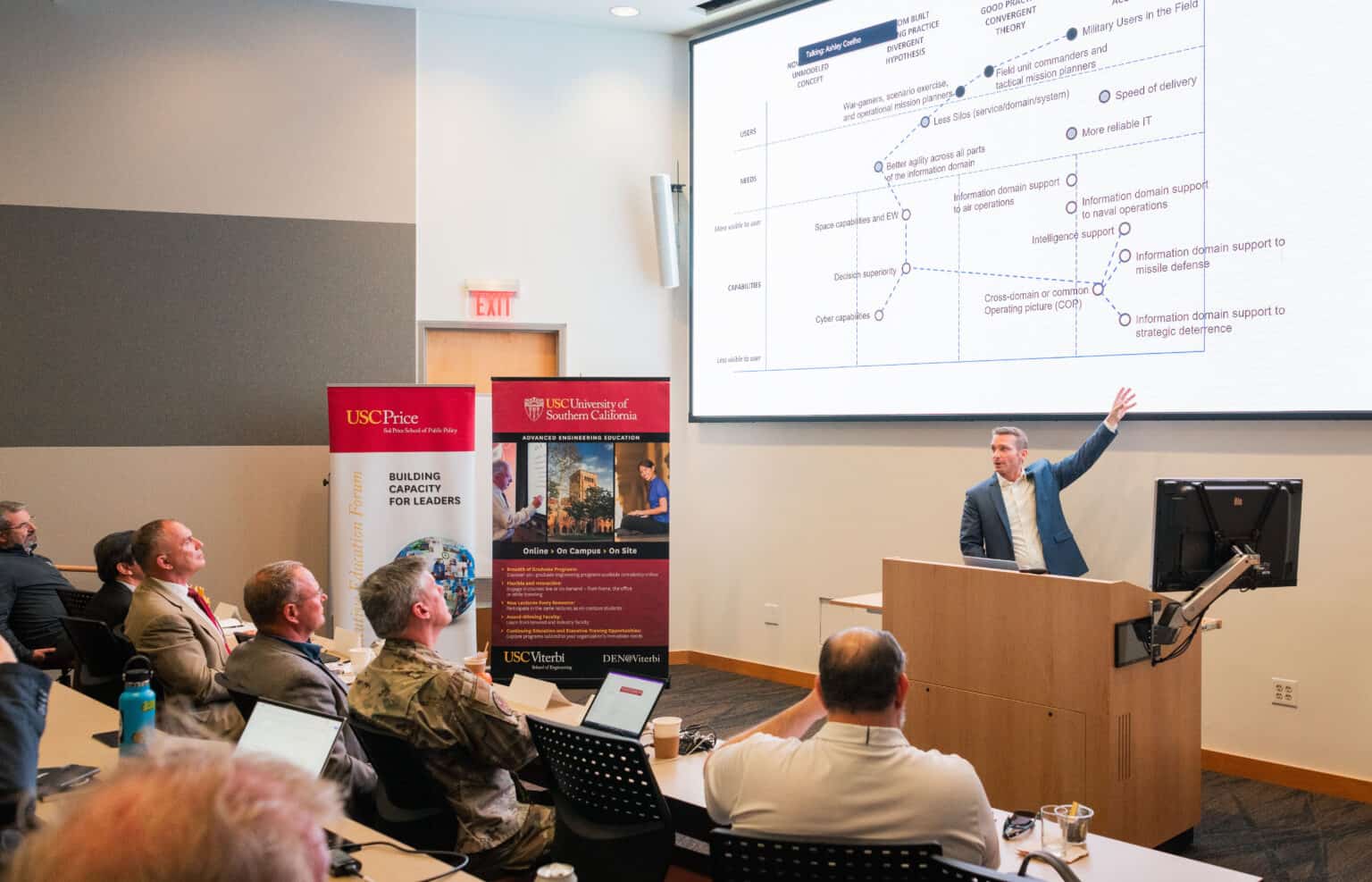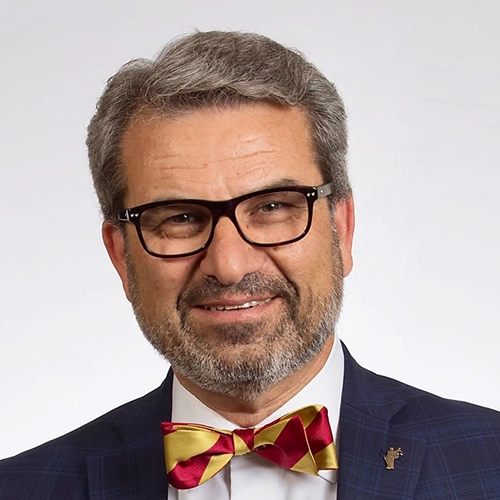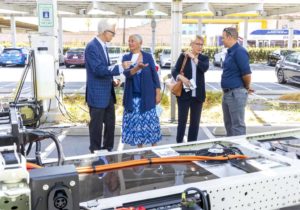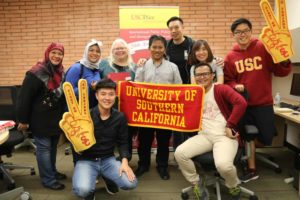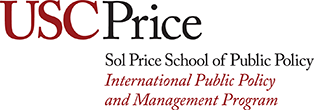Jamie Johnson, Ph.D, presenting material during the Executive Program in Global Space and Defense, Spring USC Residency.
(Photo by Hannah Benet)
By Omar Lewis and Jenesse Miller
Highlights
- War in Ukraine underscores need for program’s multidisciplinary approach to national defense
- High-ranking officials from military, government and private industry took part in program’s inaugural year
- Student projects looked at missile defense challenges, how to respond to an attack on U.S. satellites, how to defend Guam
Participating in USC’s first Executive Global Space and Defense Program couldn’t have been more timely for George Christoph.
It’s one thing to ponder theoretical threats, said Christoph, a lieutenant colonel in the U.S. Air Force, But, “it’s another thing to see it in action with Russia acting out what they said they were going to do. I hope this makes everyone realize this threat is real, and it can happen.”
Indeed, the program’s capstone events, April 28-30, coincided with Russia’s missile attack on Ukraine’s capital city Kyiv, underscoring the global stakes for missile defense.
Taught by faculty in the USC Sol Price School of Public Policy and USC Viterbi School of Engineering and in partnership with the Missile Defense Advocacy Alliance (MDAA), the course helps students learn to better defend against international threats to the U.S. homeland and outer space by enhancing their understanding of the intersection of public policy and engineering.
Upon completion of the program, Christoph, who is stationed in Panama City, Florida, says he plans to brief top ranking military officials on the valuable lessons he learned from the USC executive education program.
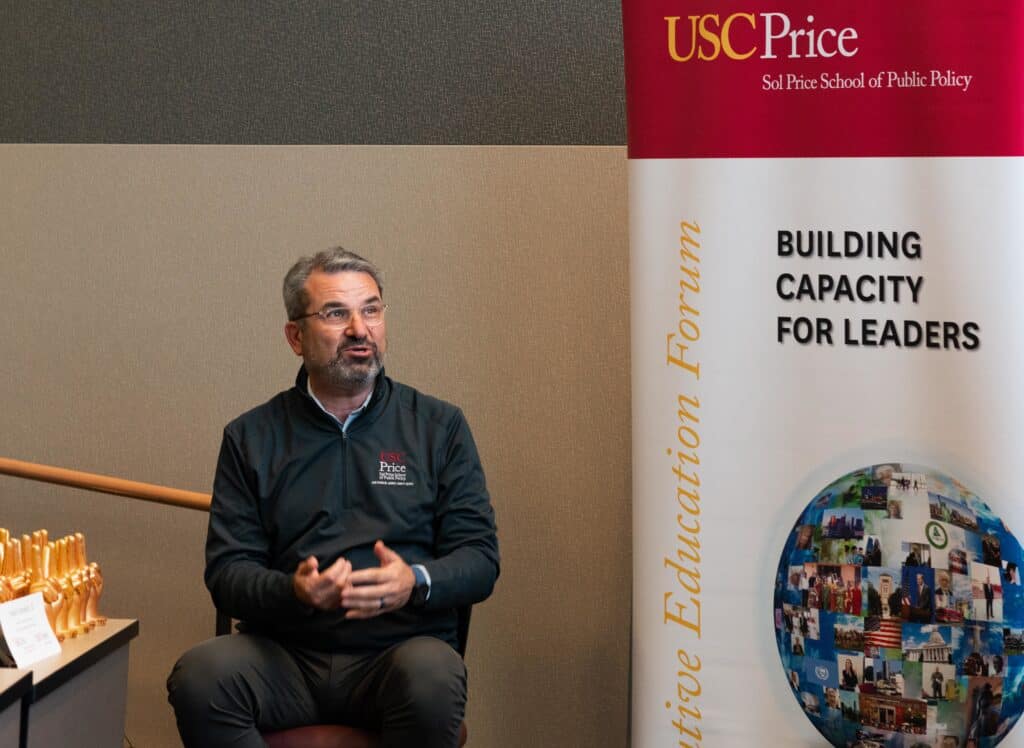
USC Price Director of Executive Education and a professor of the practice of governance Frank Zerunyan teaching at Spring residency course. (Photo by Hannah Benet)
An interdisciplinary approach to missile defense
“As a university, we are immersed in the future of the world. That’s exactly what we are doing through this program by bringing an interdisciplinary approach to global defense and deterrence,” said Frank Zerunyan, USC Price Director of Executive Education and a professor of the practice of governance. Zerunyan and USC Viterbi Associate Dean of Corporate Engagement and Programs Candace House Teixeira co-created the certificate’s curriculum and faculty appointments.
More than two dozen high-ranking officials from the military, government and innovation communities completed the inaugural USC Executive Program in Global Space and Defense. The eight-month course, which kicked off last September, aimed to help leaders tackle growing issues of national security by bridging bureaucratic gaps between policy and new innovations.
The first cohort was made up of professionals holding various positions in the Department of Defense, U.S. Army, U.S. Space Force, U.S. Air Force, U.S. Navy, The National Guard, The Boeing Company, Lockheed Martin and Raytheon Technologies.
“You can have the best engineering solution in the world, but it doesn’t matter if the policies in place don’t allow you to utilize that solution,” said Riki Ellison (USC Dornsife ’83), the founder and chairman of MDAA. “We wanted to create a culture of excellence where we can teach future leaders how to collaborate, exchange ideas and create key relationships.”
Military experts say mixing professionals who have a variety of security and defense backgrounds helps them better understand how to address real-world defense challenges, builds collaboration and ultimately strengthens military defense.
“After this course, one of the military professionals may personally and professionally know a senior person from Boeing. They can actually pick up the phone and say, ‘Look at what’s going on here internationally; do you have this on the shelf or what can we do to help enable and speed this process?’” said Rear Admiral Victorino G. Mercado (ret.), MDAA’s academic innovation liaison to the project and former assistant secretary of defense for strategy, plans and capabilities at the U.S. Department of Defense.
Guest speakers included senior defense officials, military leaders and experts in defense policy and operations. The U.S. Space Force, the newest military branch which has become key to the conversation about national and global security, also took center stage in the course. Students visited Vandenberg Space Force Base and The Los Angeles Space Force Base. USC recently joined the Space Force’s University Partnership Program.
“Understanding what’s new in academia and how we can apply that to what we do in space was extremely valuable and exactly what I was hoping to get from this experience,” said Colonel Heather Anderson with the U.S. Space Force. “It gives me a different strategic picture.”
Students completed the course with group capstone projects designed to analyze the toughest policy and engineering problems while producing tangible solutions. Topics ranged from missile defense challenges, to how to respond to an attack on U.S. satellites, to how to defend Guam, the westernmost territory of the U.S.
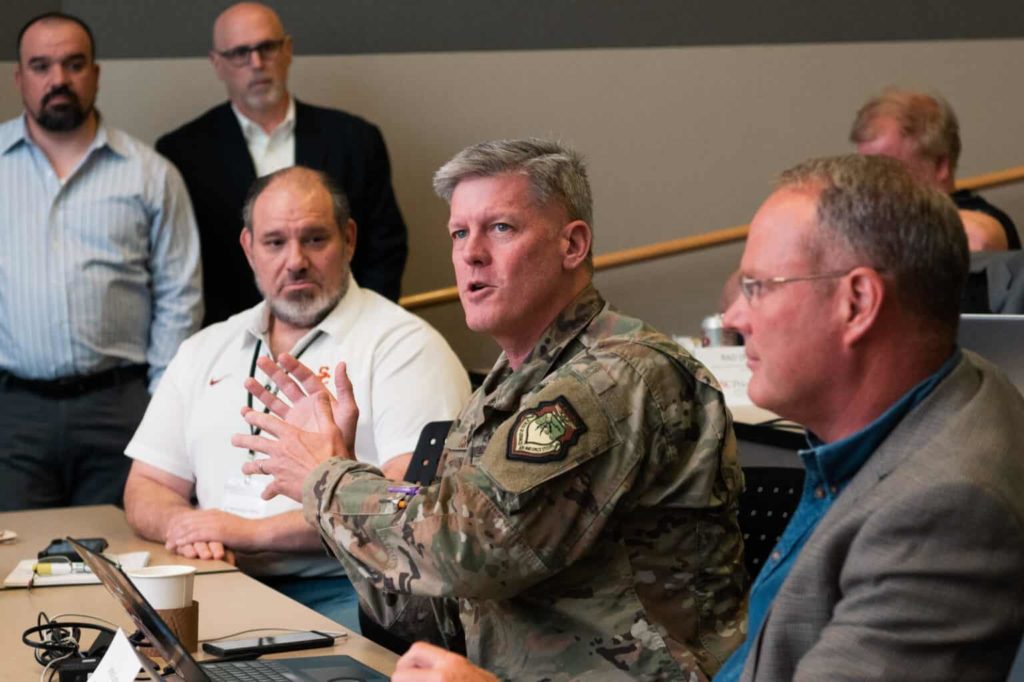
Students react to a capstone presentation for the USC Price/Viterbi Executive Program in Global Space and Defense. (Photo by Hannah Benet)
Recruitment for the second cohort is already underway
USC Price’s Zerunyan, who also serves as the director of university’s ROTC program, said USC was well situated to host the executive program, which, reaffirms the intersection of our military academic assets, defense technology, community and governance at the core of Los Angeles County and reflects our central mission: the development of leaders to devise policies that make societies and communities worldwide better places for all.”
Planning for the next iteration of the program has begun, Zerunyan said, with recruitment for the second cohort taking place over the summer and an anticipated launch in September 2022. “It is unique for an executive education program to bridge diverse academic areas, such as engineering and policy, with the real-time needs of the U.S. Military and industry partners,” said USC Viterbi’s Candace House Teixeira. “We look forward to years of continued program development in this area. This is just the beginning.”
Related faculty
Frank V. Zerunyan
Professor of the Practice of Governance
Director, Executive Education
Director of ROTC Programs
